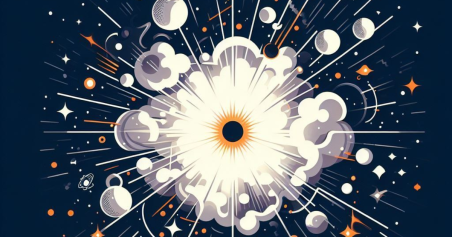The concept of the Big Bang theory posits that our universe originated approximately 13.8 billion years ago through the explosion of an infinitely dense singularity. But this long-held notion has faced scrutiny from physicists who find problems with the concept of an initial singularity. A recent model applies quantum corrections to Einstein’s general relativity equations asserting that the universe may have existed forever without a definitive beginning or end.
The singularity at the outset of the Big Bang arises unambiguously from the mathematics of general relativity. But some scientists argue this is a fatal flaw in the theory, since the laws of physics break down at the singularity point. In 2015, physicists proposed a model that avoids the shortage of explanations around the Big Bang singularity.

Their work builds on ideas to replace classical paths with quantum trajectories that never cross each other. By applying these trajectories to a key equation, new quantum-corrected cosmic expansion equations were derived. These describe the evolution of the universe without a precise starting point.
In the model, quantum corrections act as a cosmological constant and a radiation term keeping the universe finite in size and infinitely old. The predictions closely fit current observations of accelerating cosmic expansion and density.
The model envisions the universe filled with a quantum fluid of hypothetical massless gravitons carrying gravity. Recent research further supports how gravitons could sustain the necessary condensed state at all times.
Avoiding the singularities permitted by general relativity is a major appeal. This framework eliminates the Big Bang singularity and “big crunch” fate. The possibility of endless existence is also philosophically satisfying. Moreover, the corrections account for dark matter and energy comprising 95% of the cosmos.
While initially proposed in 2015, analysis is ongoing allowing for perturbations that could cause deviations. However, significant changes seem unlikely. Verifying this would mean rethinking mainstream physics tenets.
For those bothered by logical gaps in the Big Bang concept, an eternal cosmos merits attention. The creative application of quantum mechanics to address cosmic questions displays admirable scientific imagination. This model synthesizes key observations into a complete narrative free of loose ends.
